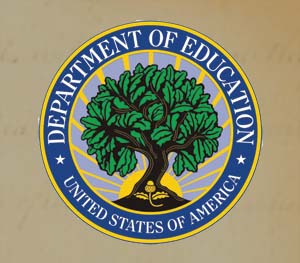 The US Department of Education is proposing new regulatory language to reign in the abuse of federal financial aid programs by for-profit colleges. James Hoyer Attorney Jillian Estes testified before the Dept. of Ed’s Negotiated Rule Making Committee in June, 2009, making specific recommendations to eliminate incentive compensation, where for-profit colleges provide bonuses and other financial perks for recruiting students to attend those schools and apply for financial aid.
The US Department of Education is proposing new regulatory language to reign in the abuse of federal financial aid programs by for-profit colleges. James Hoyer Attorney Jillian Estes testified before the Dept. of Ed’s Negotiated Rule Making Committee in June, 2009, making specific recommendations to eliminate incentive compensation, where for-profit colleges provide bonuses and other financial perks for recruiting students to attend those schools and apply for financial aid.
Federal law provides that there is to be no “commission, bonus or incentive payment” to any person responsible for recruiting or admitting students. However, under the Bush administration, 12 so-called “safe harbors” were added as exemptions to this rule that helped schools skirt the law and develop the high-pressure boiler-room admissions departments that are now typical of for-profit schools.
During Attorney Estes June testimony, she specifically address the “safe harbors” and the need for complete revocation:
“The safe harbors that have been so frequently discussed today are ironic in name and implication. The idea of “safety” betrays the priority of the administration that created them, as the regulations provide safety only to the schools who use them to toe the line of propriety while wholly disregarding the impact on students subjected to those recruiting practices. My first suggestion, then, is that the Department completely reexamine the practical impact of these dangerous harbors and remove or narrowly define them to consider the elaborate incentive programs as part of the bonus structure that is weighed in considering Title IV compliance.”
On November 30, the Department of Education agreed with Estes’ recommendations. In their proposed language for regulatory revisions, (Issue #4, pages 41-49) the Department addressed the danger of each of the safe harbors and recommended the “safe harbors” be completely eliminated.
The Negotiated Rule Making Committee holds its second round of meetings Dec. 7-11 to continue the negotiations. With these strong indicators from the Department, students and their advocates are hopeful for progressive changes that will provide better consumer protection and a refocus of the priorities for institutes of higher education.


